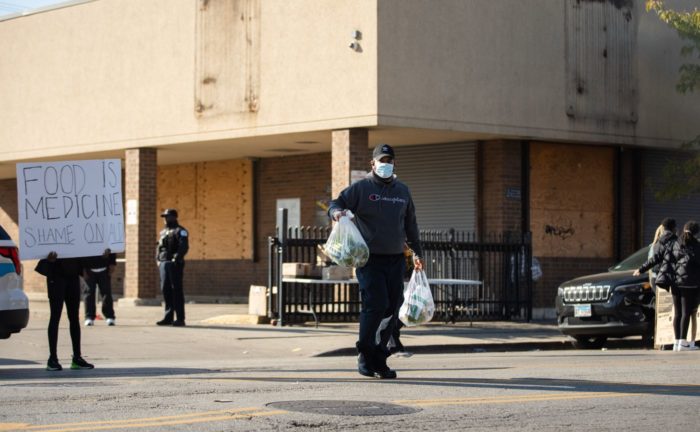
Aldi, McDonalds and Honest Discussions
An Aldi closed recently in Chicago. What happened next illustrates a basic problem in our country.
The Closing
The Aldi in question was located in the West Garfield Park neighborhood, on the west side of Chicago. It is a troubled area. For example, life expectancy for people living in the neighborhood is 16 years less than for people living downtown. Aldi was one of the few grocery stores in the neighborhood, and a critical resource in the community.
Abruptly, around October 9, it just closed. Aldi provided no explanation. The store just shut down, leaving an enormous hole in the community.
The Reaction
Aldi’s closing caused quite a stir. Community activists attacked the company for abandoning the area and profiteering. People lamented the food desert. One activist said Aldi was an example of companies that “basically plunder and then walk away with impunity.”
After protesters showed up at Aldi’s offices, the company belatedly explained that the store closed because it was operating at a loss.
The Reality
While it is easy to attack Aldi, the reality is more difficult to process. Aldi is a for-profit company. If the firm can make money operating a store on the west side of Chicago, it will.
Why would Aldi walk away from a store? There are, sadly, only a few reasons.
1. The area isn’t safe. Aldi, like most companies, wants employees to be secure. If violence is prevalent in the neighborhood, the company might decide the risks are simply too great.
2. It isn’t profitable. This is what the company said in its statement. But why would an Aldi not be profitable? There is certainly demand. Aldi could command a decent margin, especially in an area with little competition. Operating costs are likely low. One explanation could be that crime (shrinkage, in retail terms) was particularly bad at that location.
The Problem
Why, precisely, did Aldi close? We don’t know for certain. The company didn’t openly discuss the issue. It just closed the store.
Of course, when you see how the CEO of McDonalds is being attacked for suggesting that perhaps the lack of parenting might have somehow contributed to the death of children from shootings in Chicago, it makes sense that Aldi isn’t commenting at all on the real issues behind the closing.
Target didn’t comment, either, when it closed all its stores on the south side of Chicago.
The reality is that you just can’t discuss certain issues.
The Solution
It is difficult to solve a problem when people can’t talk about it. An open discussion might help. How can stores operate safely and profitably in certain areas? How can shrinkage be contained, and employees kept safe?
I am completely confident that the issues can be addressed. Stores can operate safely and profitably. But this won’t happen if the issues are too toxic to bring up.
Here is the situation: we can’t discuss some of the issue facing our country. As a result, things are not likely to get better. And areas of Chicago will remain food deserts, wondering why stores like Target, Aldi, Walmart, and Whole Foods don’t open.
This isn’t complicated. It also isn’t pleasant. But it is the world we live in.
Comments RSS Feed